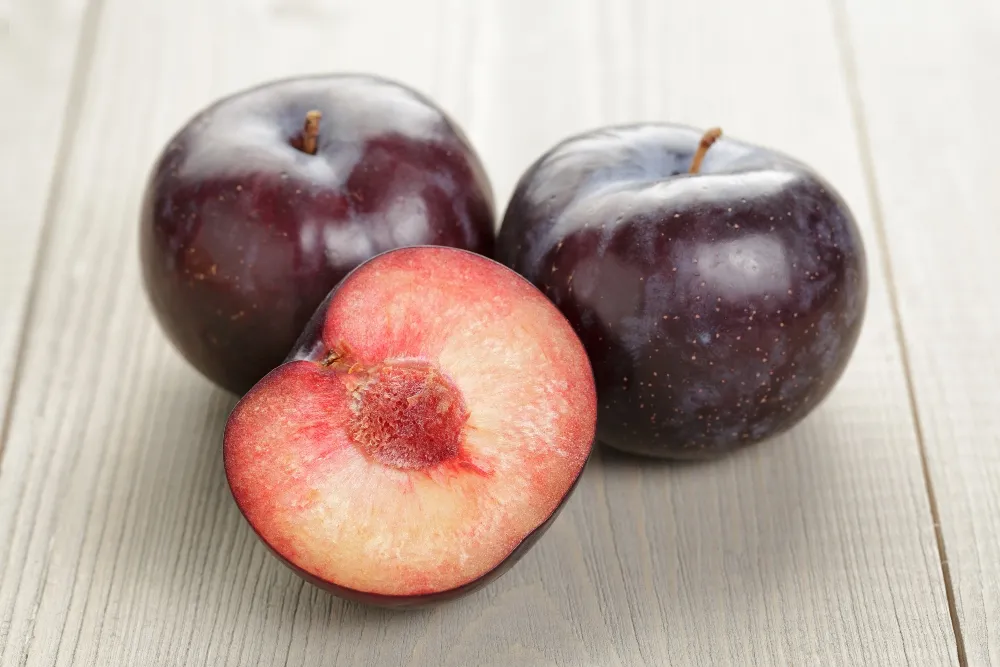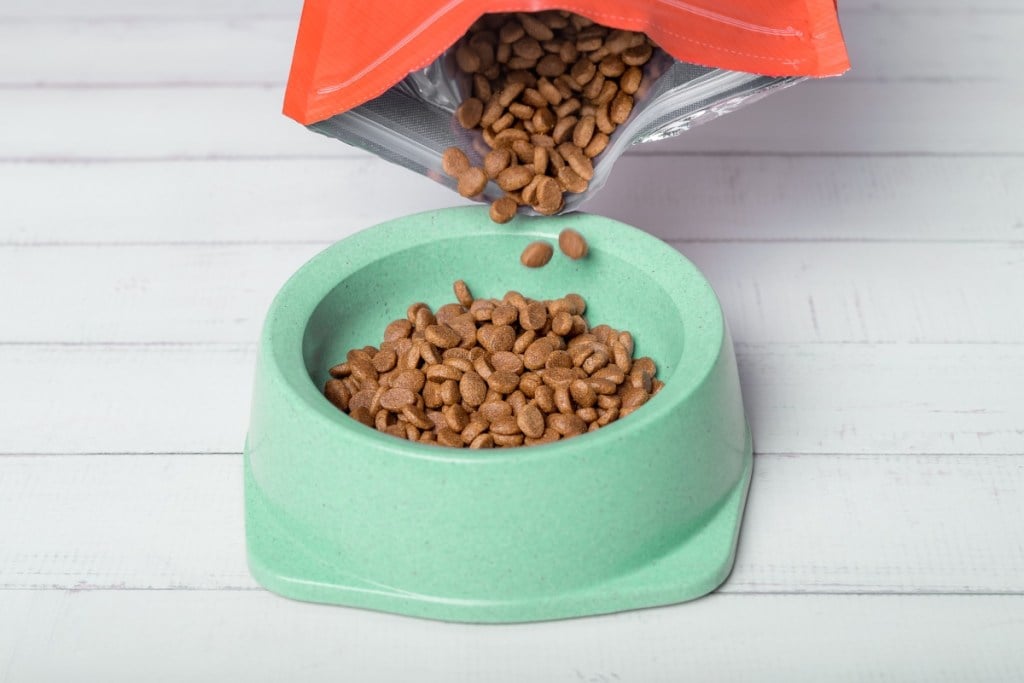Table of Contents
The quick answer: Yes, the fruit is safe so long as the pit is removed.
Benefits of plums
Plums have a waxy skin with a juicy middle and range from sweet to tart. The fruit is not toxic to pets, and it is safe to feed fresh plums in small amounts, with or without the peel (we recommend keeping it for the extra fiber!). Plums are healthy and contain beneficial nutrients such as vitamins C and K, potassium, copper, antioxidants, and dietary fiber.
Hazards of plums for dogs
Plum pit: Be mindful of the pit inside of a plum; these should be removed and tossed out where your curious pet can’t access them. Plum pits often have sharp edges which can cause injury if swallowed, and they can also cause internal obstruction. If you suspect your dog has swallowed a pit and is showing signs of lethargy, loss of appetite, vomiting, and weight loss, seek immediate veterinary care. Additionally, the pit of a plum contains cyanide. Fortunately, there isn’t enough in one pit to cause much harm, but this is something to note if you have a plum tree in your yard.
Share in moderation: Due to the fiber and natural sugar content, plums should only be shared in moderation. A few bites won’t hurt but consuming too much in one sitting can cause an upset tummy, resulting in vomiting and/or diarrhea. Fruits should be given like treats: sparingly and no more than 10% of your pet’s daily diet.
What about prunes? Prunes are plums that have been dehydrated and are often eaten (by people) as a naturally sweet snack or to help with digestion. It is safe for your dog to have a bite of a prune here or there, but dogs shouldn’t eat prunes on a regular basis. Compared to fresh plums, prunes are more concentrated in sugar and fiber, meaning a quicker way to a tummy ache. The sticky treat can also get stuck on your dog’s teeth.








